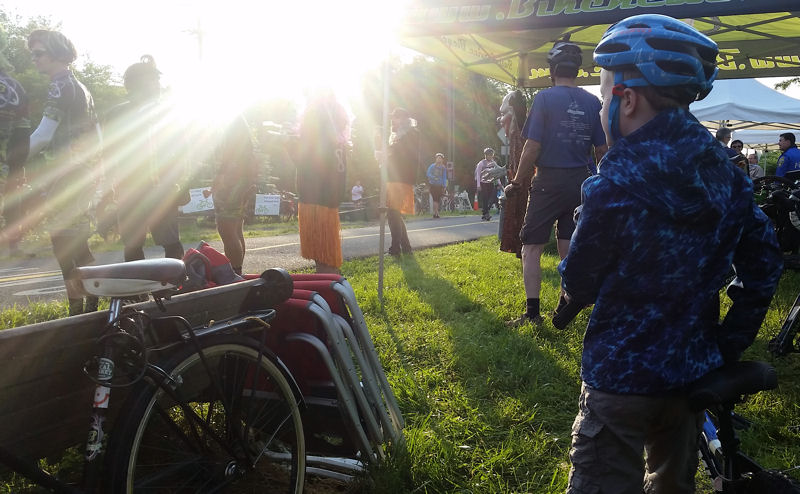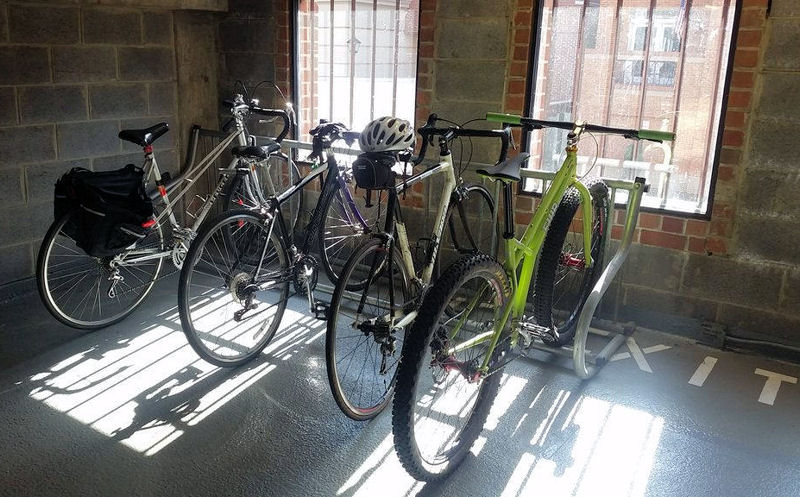
Matt Ries, chief technical officer at the Water Environment Federation (WEF; Alexandria, Va.), celebrated the local Bike to Work Day on May 20 by taking his son (pictured) to join others on the Washington and Old Dominion trail. Photo courtesy of Ries.
Logging more than 3700 km (2300 mi) collectively between May and September, eight bikers from the staff of the Water Environment Federation (WEF; Alexandria, Va.) zoomed past their goal for the 2016 National Bike Challenge.
This year the annual challenge, organized by PeopleForBikes (Boulder, Colo.), called on more than 75,000 Americans to help exceed the goal of traveling more than 56 million km (35 million mi) collectively to promote fitness and to offset the amount of carbon dioxide released from other vehicles.

Between May and September, eight WEF staff members logged 3712 km (2307 mi) as part of the 2016 National Bike Challenge. On May 20, numerous staff took their bikes to and from work. Photo courtesy of Ries.
In early September, WEF riders surpassed their goal of 3173 km (1972 mi) — chosen to represent the year that the Clean Water Act came into effect. WEF ranked 550 out of 864 participating workplaces nationwide. The WEF team logged a total of 3712 km (2307 mi) with 72% of this distance categorized as transportation between locations and 28% categorized as recreation.
During the 5-month challenge, the WEF team
- traveled further than the distance between Los Angeles, Calif. and Havana, Cuba;
- burned 125,068 calories;
- saved approximately $942; and
- prevented about 1500 lbs of carbon dioxide from entering the atmosphere.
— Justin Jacques, WEF Highlights








November 16, 2016
Featured